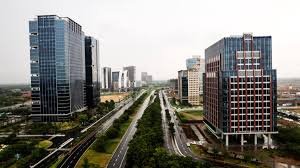When industries open in urban areas, they don’t just generate goods—they become powerful engines for the growth and development of the region. Here’s how they contribute to urban transformation:
1. Job Opportunities for Local Communities:-
Industries provide employment across various sectors, from manual labor to specialized roles. This influx of jobs:
- Reduces unemployment.
- Improves the standard of living.
- Increases local spending power, boosting the economy.
2. Upgrading Local Infrastructure
The presence of industries often leads to the development of essential infrastructure such as:
- Roads and transport networks.
- Energy and water supply systems.
- Communication facilities.
These improvements benefit not only the industry but also the wider urban community, making the area more attractive for further investments.
3. Boosting Local Businesses:-
Industries rely on a range of suppliers and services, from raw materials to logistics and hospitality. This demand creates opportunities for local small businesses to grow, such as:
- Suppliers.
- Restaurants and retail stores.
- Service providers (e.g., cleaning, maintenance).
4. Improving Skills and Education:-
Industries often invest in training and education programs for local workers, increasing the skill set of the population. This leads to:
- A more skilled workforce.
- Opportunities for career advancement.
- Educational partnerships with local institutions.
5. Sustainable Urban Growth
Modern industries are increasingly conscious of environmental and social responsibility. They adopt practices like:
- Sustainable waste management.
- Green energy initiatives.
- Community outreach programs.
This helps urban areas grow in a more sustainable and inclusive way, balancing economic progress with social welfare.
In short, industries play a vital role in transforming urban areas, providing jobs, boosting local economies, and promoting sustainable development.

